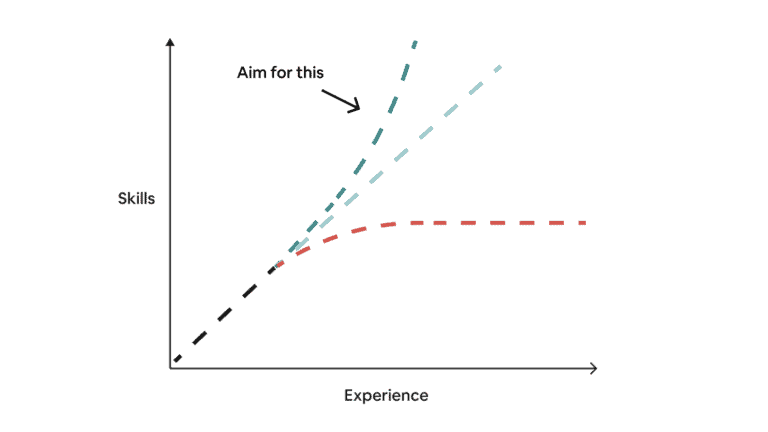Since the start of COVID, an increasing number of companies are embracing remote work (aka WFH) — either as a perk or their default setup. As a big remote work advocate, I want to share some practical tips to help new remote workers adapt to this new way of working.
These tips are based on my personal remote work experience, combined with insights from my time at Arc (formerly CodementorX) and Remote-how, two startups deeply embedded in the world of remote work.
Productivity
Studies have shown that working remotely can be just as productive as, if not more than, working from an office. You have to first acknowledge this fact and not let remote work be an excuse for low productivity.
Here are some tips that might help:
- Don’t just roll out of bed and start working right away. Create a morning routine so you can get your body and mind ready for a full day of work. I have found Andrew Huberman’s morning routine quite helpful.
- Set a work schedule, even if your job allows you to be flexible.
- Create a home office with good ergonomics (your bed will likely not cut it).
- Place your phone somewhere not easily accessible.
- Change up the environment from time to time. Go to a coffee shop or co-working space where you can see other people.
- When working on tasks that can be done alone, turn off notifications from apps (Slack, email…etc) for a reasonable time to completely block off distractions.
- Invest in a pair of noise-cancellation headphones and listen to music that improves concentration. There are studies suggesting that some genres work better than the others, such as brown/pink/white noise, lofi, and classical music.
Collaboration
Collaboration is the hardest part of remote work. While tools like Slack and Zoom have made remote communication easier than ever, the lack of in-person interactions can be hard to adjust to. But don’t worry, with proper tools and practices, collaborating remotely can be just as effective.
- Overcommunicate — give examples, ask for clarifications, use visuals…etc.
- Show your face during calls. Facial expressions and body language make communication more effective.
- Filter background noise during calls with Krisp.
- Run real-time whiteboarding sessions with Miro or FigJam.
- Create a sense of closeness with virtual office software like Gather, Tandem, and Sococo.
- Leverage asynchronous communication. If a topic can be finished with a few simple exchanges, don’t arrange a meeting.
- Don’t be afraid of long-form writing. This is how you cut down meetings while still keeping communication efficient. Here are some writing tips from Amazon, which is known for having a great writing culture.
- Prioritize readability when writing. Be specific, use simple words, and proactively prevent confusion and address questions. You can check how readable your writing is using Hemingway.
- Before you start a private discussion in a remote setting, ask yourself, “Will others benefit from knowing this?” If the answer is “perhaps” or “yes”, share it publicly.
- Be intentional with your tone when writing. Using emoji helps! 😀
- Want to explain something verbally but don’t want to call a meeting? Record yourself with Loom (especially useful if you are using visuals).
- As unproductive as most meetings are, they are the more efficient option for complex discussions that require a lot of back and forth. If a written discussion isn’t going anywhere, start a call already!
- Share your calendar so your teammates can schedule meetings without the dreadful back and forth.
- If your team is distributed across different time zones, set up intentional overlaps as collaboration time.
- Keep your Slack status updated (e.g. out for lunch, in a meeting) so people can vaguely guess your response time. (💡: Connect calendar to update status automatically.)
- Async and sync collaboration are not mutually exclusive. They usually need to go together.
Health and well-being
Loneliness is a real issue among remote workers. It can affect not only mental but also physical health. Fortunately, it’s something that can be dealt with, and you are not in this alone.
- Schedule dedicated virtual coffee with teammates to talk about anything not work-related.
- Meet with your teammates in person periodically (1-2 times a year at the very least).
- Join online communities for remote workers.
- Stick to a work schedule also means you finish work on time, not working endlessly.
- A survey found that remote workers struggle to unplug after work. Make sure you turn off notifications from work apps when you finish the day.
- Don’t binge eat! It’s tempting to snack all day when no one is there judging you.
- Most importantly, working remotely means you spend less time commuting and have location freedom, leverage these benefits to enjoy your life more!
Management
If you are a manager, this section is for you.
A strong remote culture is fundamental to every high-performing remote team, and shaping it must start from the top. With the growing popularity of remote work, the skill to effectively manage a team remotely is quickly becoming essential for every manager.
- Trust your team. If you are worried about them watching Netflix instead of working…you’ve got a much bigger problem to deal with, and it has nothing to do with remote work.
- However, do require your team to communicate proactively. This is a non-negotiable for every remote worker. Keep an eye out for red flags during the hiring process and in their first three months.
- Re-design your process for remote work. What has worked well for co-located teams likely won’t translate 100% in a remote environment.
- Take the initiative to learn more about remote work. Talk to other remote teams, read articles, or enroll in a remote manager course.
- If your team is distributed across different countries, be aware of local labor laws. Use an employer of record (EOR) service, such as Deel or Remote, to hire compliantly and reduce overhead.
- Pay attention to remote security policy. Some rules are harder to enforce in a remote setting, and you often have to provide additional tooling to make it work.
- Set up shared holiday calendars, including local public holidays, so everyone can be aware of them.
- If you are a middle manager, you might not have any authority to set the company’s remote policy, but it’s your responsibility to represent your team in front of decision makers.
- Understand that remote work is simply a product of progressive leadership. That’s why many remote-first companies, such as Zapier, Buffer, and Basecamp are constantly challenging conventional management practices and re-evaluating the way they work. If you blindly follow outdated corporate practices from business school textbooks, you’ll always be behind the curve as a manager.
Remember, remote work isn’t all that different from in-person work. However, it does require you to shift your mindset and pay extra attention to aspects that you might have previously taken for granted.
I hope these tips can help you excel at your first remote job or do even better at your current one!




